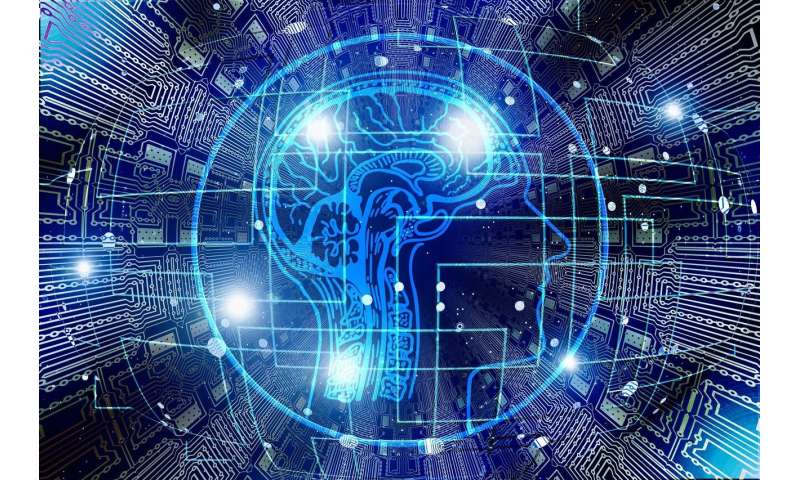
At the IBM Watson Experience Center, digital and physical worlds meet in a futuristic-looking lounge overlooking San Francisco's Financial District.
"Regardless of the industry you're in, there's likely an application for AI ... even as a chef," said IBM's data and AI engagement lead Euniq Nebo, as he stood before a 32-foot digital screen displaying human-size images of various professionals. A chef on the screen stepped forward and came to life.
Nebo spoke of questions facing a restaurant chef, such as which cutting-edge tools to invest in, or whether to incorporate local produce into a cuisine. But IBM is betting its AI can "extract the insights" from data to help its clients stay ahead of the curve, Nebo said. For example, Watson's AI could reveal a preference for avocado oil over olive in San Francisco, a finding that an Italian chef might find hard to stomach.
The digital presentation set in IBM's West Coast hub is unlike other Silicon Valley area tech centers focused on research. Instead, the center acts as a theater that showcases the company's data-wrangling capabilities for current or prospective clients interested in adopting AI.
At the San Francisco center, the promise of AI's transformative power is on full display.
The San Francisco center, opened in 2016, is one of three such IBM labs in the U.S. - along with New York City and Cambridge, Massachusetts—where the Armonk, New York-based company pitches clients on the benefits of using AI to improve workflow.
IBM Watson—a set of AI microservices on the cloud—has nearly 20,000 customers across 20 industries in 45 countries, said Inhi Suh, IBM Watson's general manager of customer engagement. "It's a partnership with clients as they innovate how they want to apply AI."
During four-hour meetings with such clients, Nebo pulls from a library of information in modular displays to explore issues relevant to each enterprise, such as addressing transparency. Last year, for example, IBM developed an open-framework service called AI OpenScale to provide enterprise customers with explanations on data and decisions made by AI systems. The service is also designed to shed light on possible biases in the clients' decision-making.
Adjacent to the display screen, the facade of a 360-degree immersion room is covered in perforated sheet metal with intricate designs. Each panel represents a data visualization of consumer purchases made on mobile devices from 2014 to 2016. The design becomes more concentrated in the final panel, which Nebo said symbolizes end-of-the-year shopping.
Inside the dark immersion room, a wraparound screen displayed a mountainous region, against a soundtrack of chirping birds. The presentation demonstrated the ways IBM's AI technology could solve the unexpected issues that arise in managing the global supply chain of an energy-bar company, said Nebo. For instance, IBM's AI-powered monitoring system could help maintain proper temperatures on the refrigerated trucks that transport the bar's ingredients. A natural-language-processing algorithm applied to social media posts could notify the company of customer disapproval.
In real life, the company has come under fire for how its technology has sometimes been used. A recent The Intercept and Type Investigations report revealed that IBM built a video-surveillance program in Davao City, Philippines, where law enforcement assassinated hundreds of people in extrajudicial killings.
An IBM spokesperson said the company never equipped Davao City with facial-recognition capability and it no longer supplies AI technology to the city's Intelligent Operations Center.
Suh was unaware of any cases where IBM turned down a customer due to concern its technology would be misused.
IBM Watson's AI-powered monitoring system is used by engineering-services firm Novate Solutions to help the Sacramento-based company scan data from production systems and notify industrial-manufacturing plants of unexpected issues.
Since adopting the AI system six months ago, Novate Solutions engineers are able to examine multiple changes in data at once, said Rob Mora, the company's executive vice president. "Humans look at the (trends) they're interested in, but they don't necessarily notice the ones that are screaming, "Hey, my behavior is changing. You ought to take a look at this," " said Mora.
Still, the engineer's judgment is a necessary final step in the process, as "not all anomalies are emergencies," said Mora.
IBM's AI system was instrumental in saving a winery thousands of dollars in potential loss last fall, when it indicated that a chilled-water system used to cool fermentation tanks and the storage area was operating at less than its normal function, he said. Once notified of the output change by Novate engineers, the winery staff quickly returned the cooling system to its proper state by opening a valve that had been closed.
Mora considers AI a revolutionary tool for industrial manufacturing that enhances engineers' expertise, instead of replacing them altogether.
"In the second chapter of every company going through its own digital transformation, we see (them) reinventing with AI in some way," said Suh. "Our desire is to be part of those companies' journeys."
©2020 The Seattle Times
Distributed by Tribune Content Agency, LLC.
Citation: IBM's Watson Center pitches AI for everyone, from chefs to engineers (2020, January 30) retrieved 30 January 2020 from https://techxplore.com/news/2020-01-ibm-watson-center-pitches-ai.html
This document is subject to copyright. Apart from any fair dealing for the purpose of private study or research, no part may be reproduced without the written permission. The content is provided for information purposes only.
